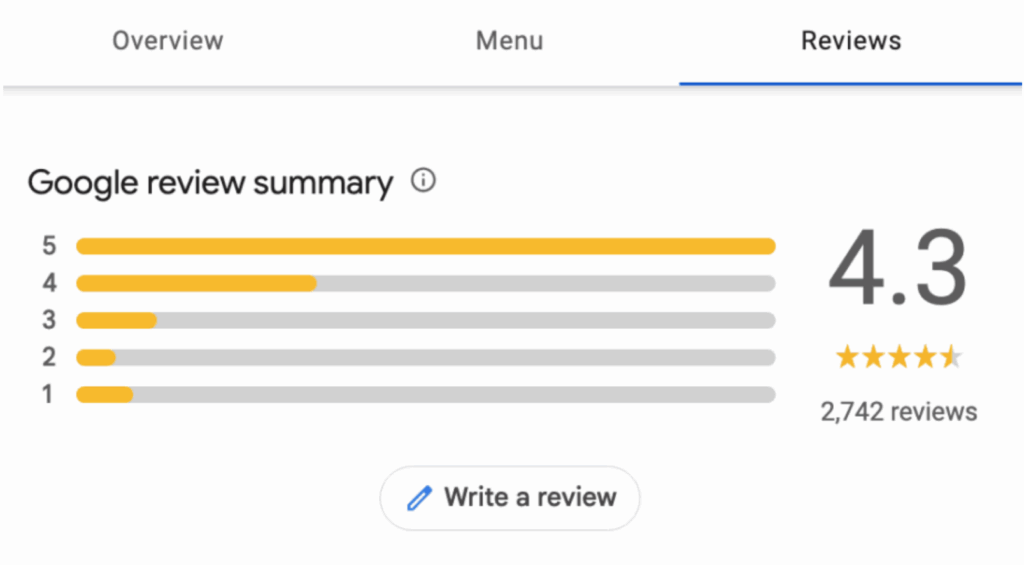
In the era of 24/7 internet, it is easier than ever for anonymous parties to ruin your reputation, or the reputation of your business, by spreading false information online. Often, these false statements cross the line into defamation.
Defamation is a form of speech that is not protected by the First Amendment. It is defined as “malicious or groundless harm to the reputation or good name of another by the making of a false statement to a third person.” (Black’s Law Dictionary, 11th ed.) Defamation may also be referred to as libel (meaning a defamatory statement published through a fixed medium like a magazine or website) or slander (meaning a defamatory statement that is verbalized in-person, or through a dynamic medium like a telephone call).
One of the most harmful forms of defamation is false online business reviews. At LATE NIGHT LAW, we are often contacted by business owners who have been hit with false business reviews on platforms like Google and Yelp.
At its most extreme, business review defamation occurs in the form of review bombing. Review bombing is the collective act of users posting an influx of negative reviews online, to intentionally damage a business’s reputation, rather than providing genuine feedback. The goal is often to protest a social, political, or cultural issue related to the business or its owners, and these attacks can significantly impact sales and reputation by generating attention and signaling public disapproval.
When your business is being defamed by anonymous reviewers, it can be difficult to impose liability, because the perpetrator is not readily identifiable. One way to address this is with a John Doe Subpoena.
A subpoena is a legal document ordering someone to provide testimony or produce documents for a legal proceeding. When your business is being hit with anonymous false reviews, the subpoena process can be used to force a social media platform, review platform, or ISP, to unmask the identity of a user who is posting false and defamatory information.
This process is not as easy as it sounds, however. This is for two reasons:
First, a subpoena has to be filed and served by an attorney as part of an active lawsuit. This means that, in order to initiate the subpoena process to unmask an anonymous web user, you have to file what’s called a John Doe lawsuit. This is a lawsuit that names an unknown defendant. Then your attorney serves a subpoena on Google, Yelp, Meta, or whichever company is hosting the defamatory reviews. Even just preparing, pleading and filing a lawsuit can be expensive, and we often have difficult conversations with clients and potential clients about whether the proverbial juice is worth the squeeze.
Second, the company on which the subpoena is served—be it Google, Yelp, Meta, or some other company—may enter the John Doe case, and file a motion to quash the subpoena. This is because companies value user privacy and even user anonymity, and may fight to protect it.
Defeating such a motion to quash a subpoena isn’t always easy. It requires you to state what’s called a prima facie case in your initial filing, i.e., in the complaint. Normally, a complaint must only “state a claim,” meaning that the plausibility threshold that must be pleaded is relatively low. But in order to defeat a motion to quash an unmasking subpoena in a John Doe case, the complaint itself has to marshal evidence in the form of declarations and attachments that show a high likelihood that defamation has actually taken place, rather than just stating a claim.
This is because these types of subpoenas implicate important First Amendment rights. Here is what one federal court in the Tenth Circuit had to say about the matter:
Courts have outlined strict rules for allowing a subpoena that has the effect of unmasking the identity of anonymous online speakers. Such rules serve the important purpose of assessing the viability of a plaintiff’s claims before casting aside the speaker’s anonymity, which once lost cannot be recovered…. In addition to establishing that its action can withstand a motion to dismiss the plaintiff must produce sufficient evidence supporting each element of its cause of action, on a prima facie basis, prior to a court ordering the disclosure of the identity of the unnamed defendant.
Koch Indus., Inc. v. Does, No. 2:10CV1275DAK, 2011 WL 1775765, at *10 (D. Utah May 9, 2011) (internal citations, quotation marks, brackets and ellipses omitted)
What this means is that you must have a particularly strong case against a John Doe defendant, prior to filing suit and serving subpoenas on ISPs or web-based platforms.
If your business is being targeted with false reviews, we may be able to help. Contact LATE NIGHT LAW to discuss your options with a defamation attorney, at (505) 225-2623. We are licensed in the state of Washington, and in New Mexico.
This article is not legal advice, and does not create an attorney-client relationship between the reader and Late Night Law. Please consult an attorney for individualized advice if you have a legal matter.
